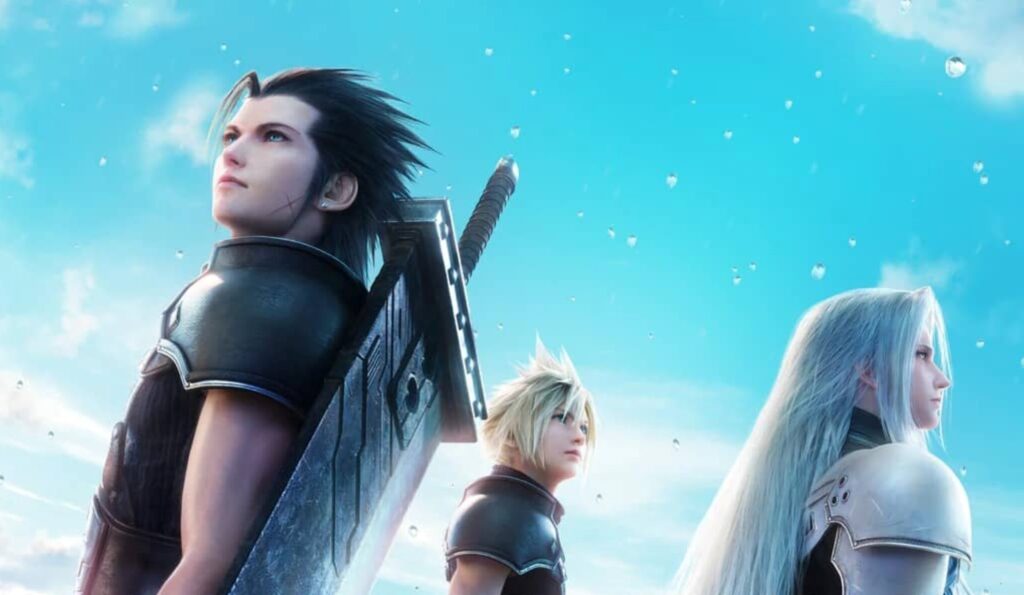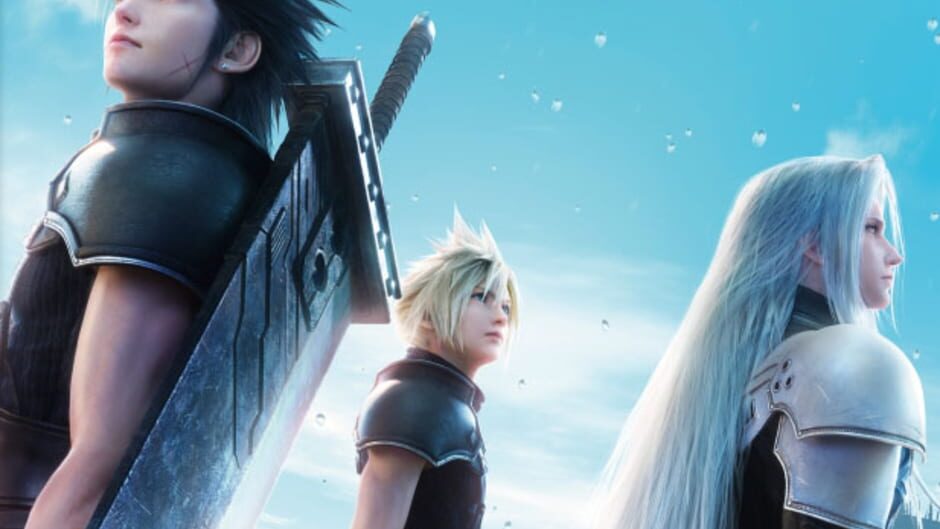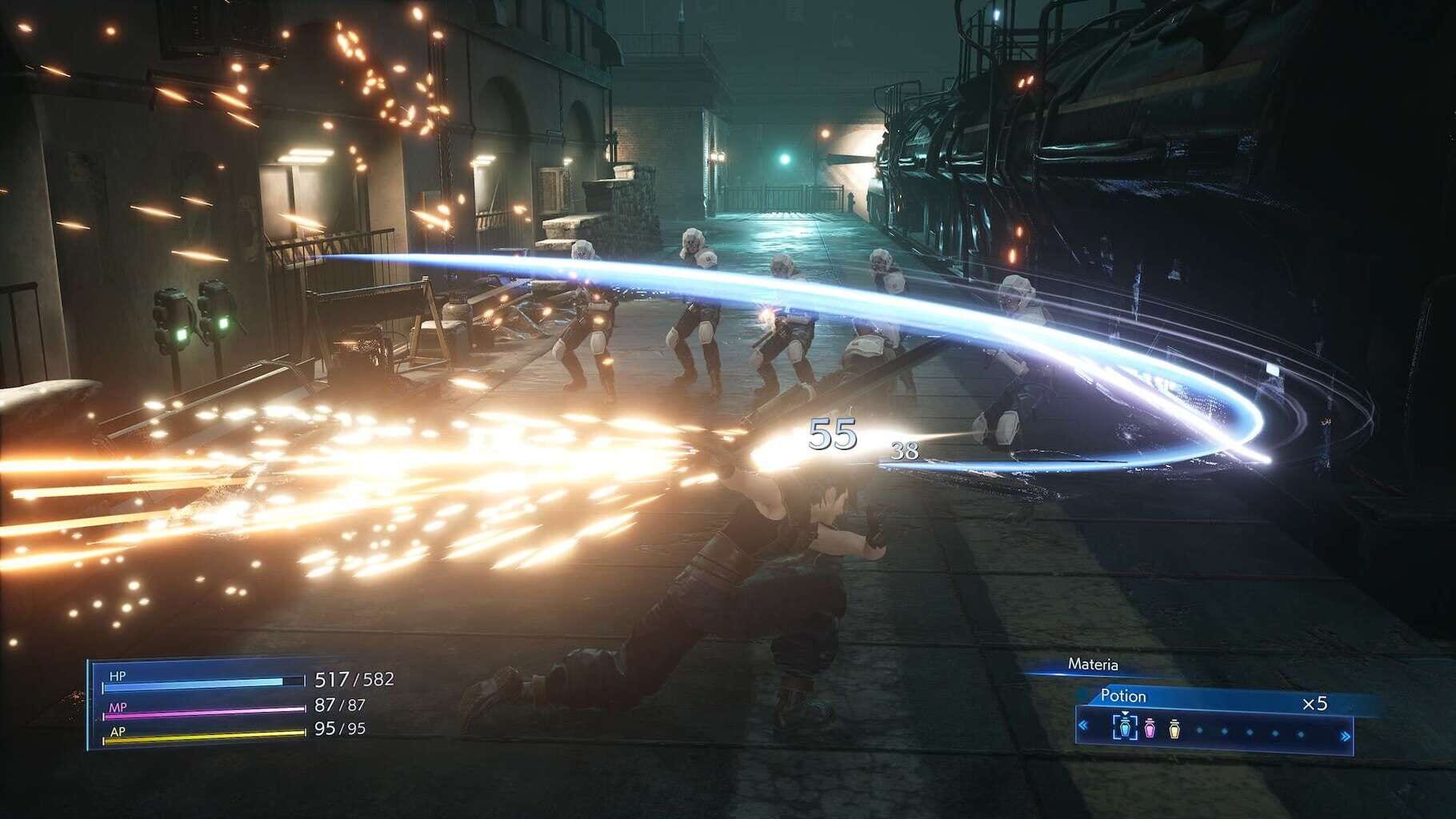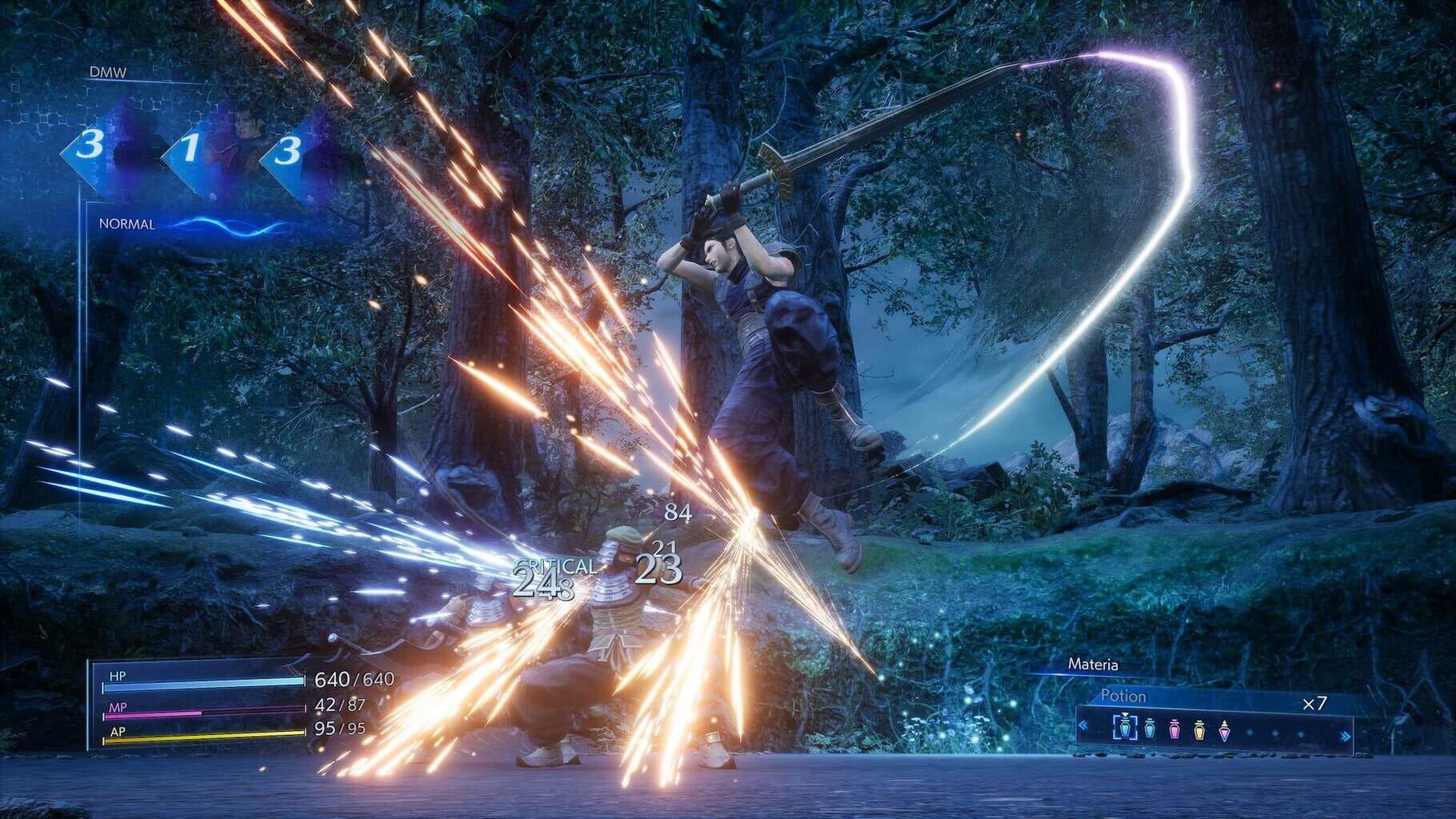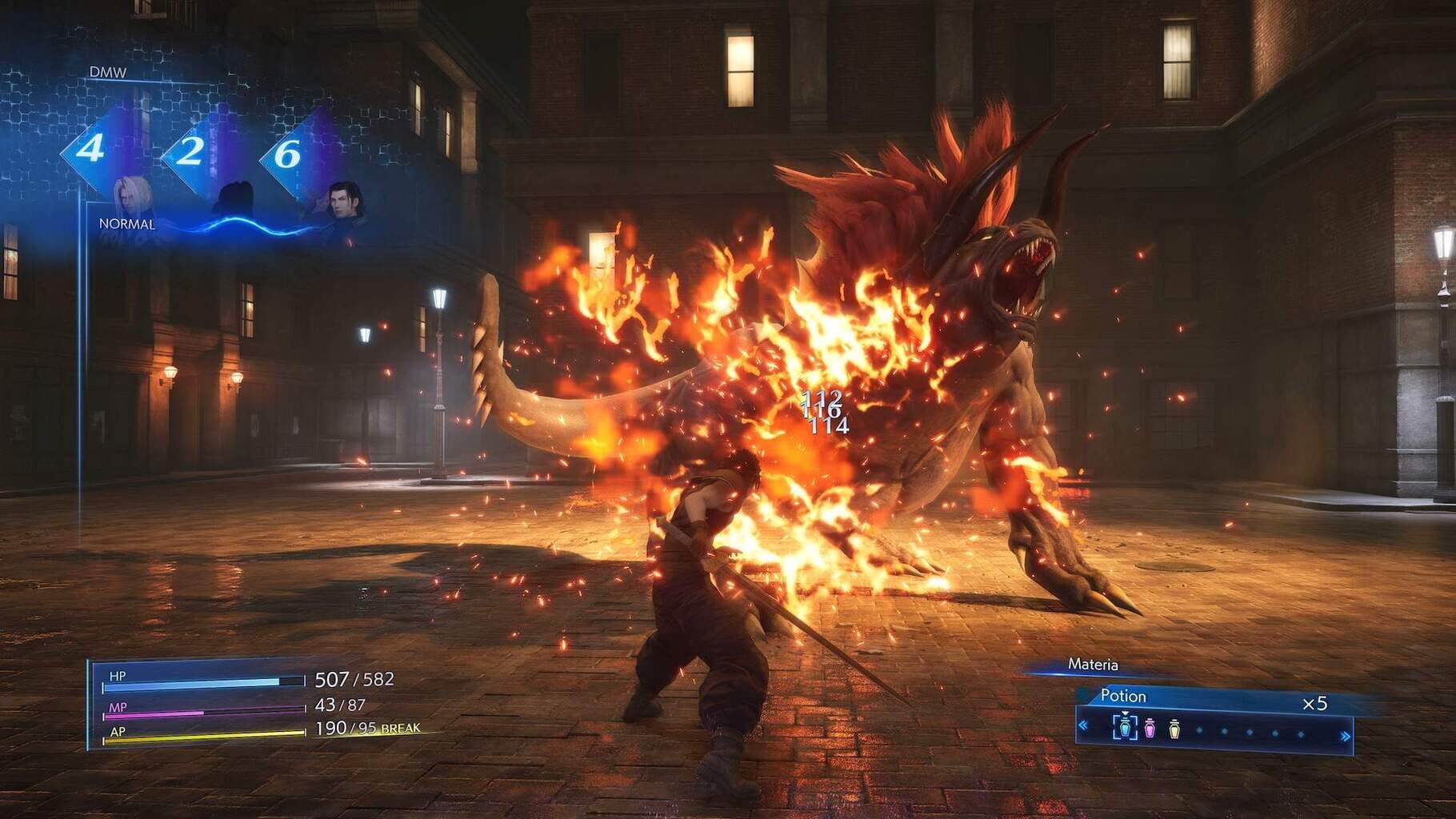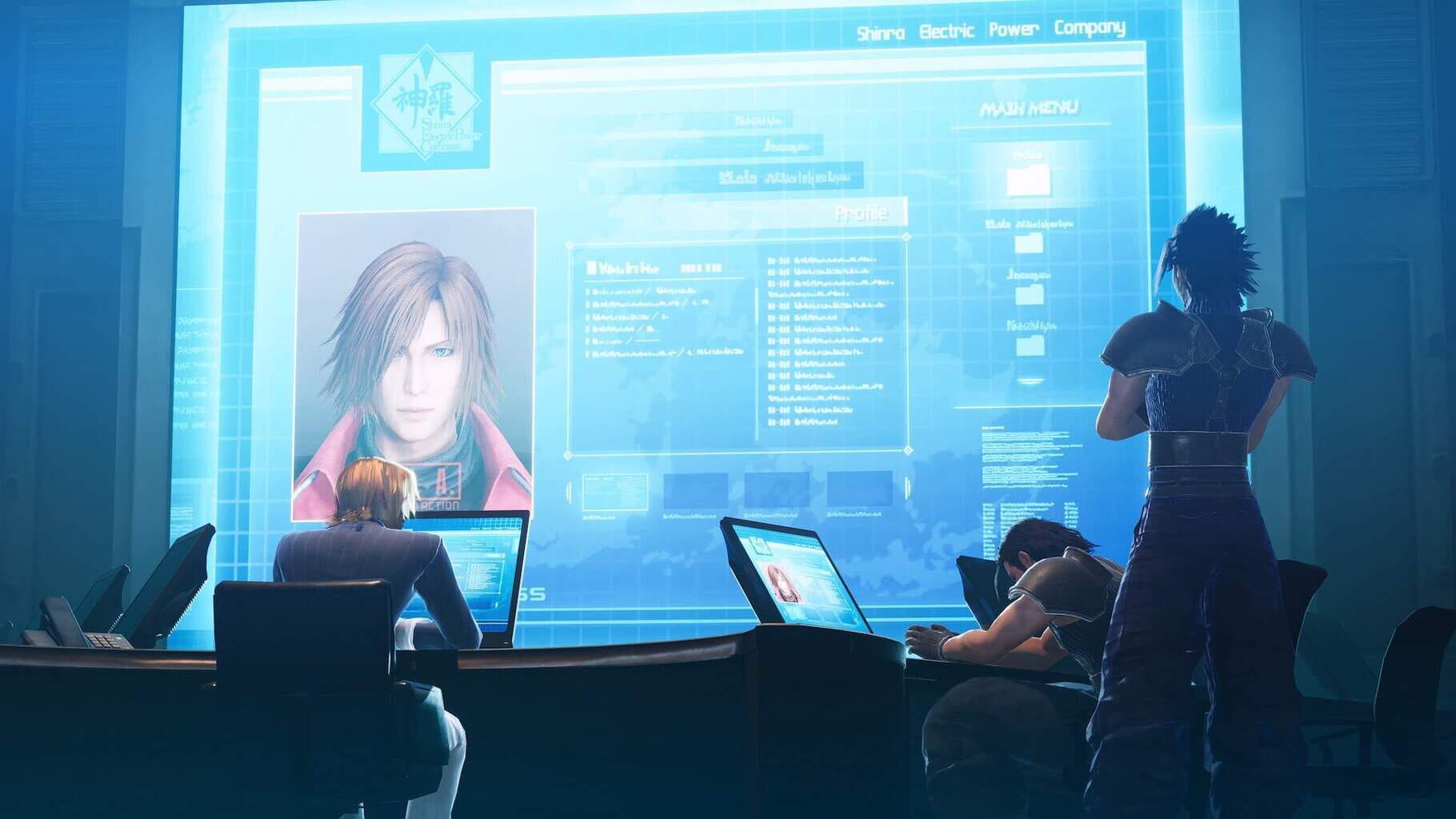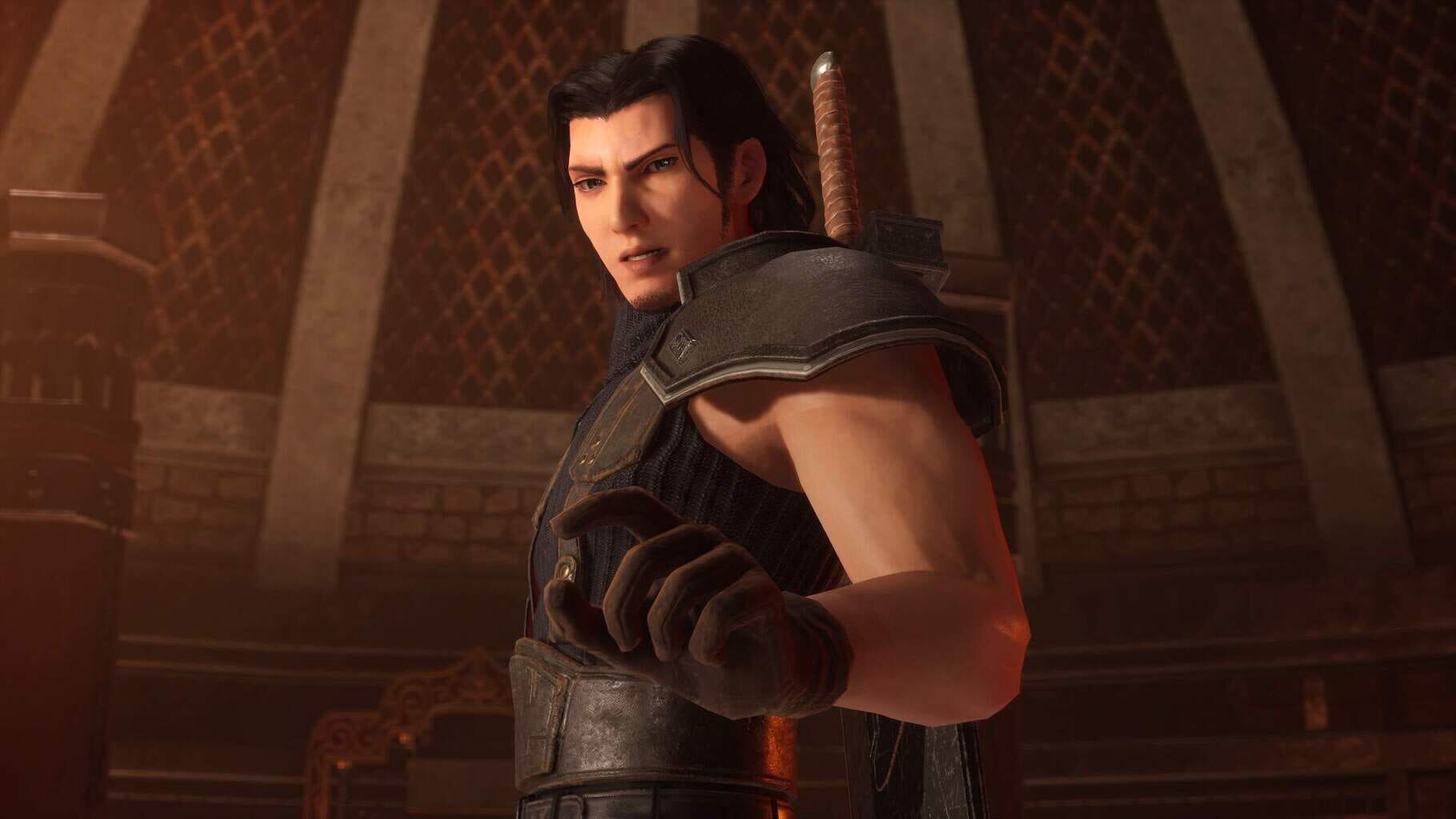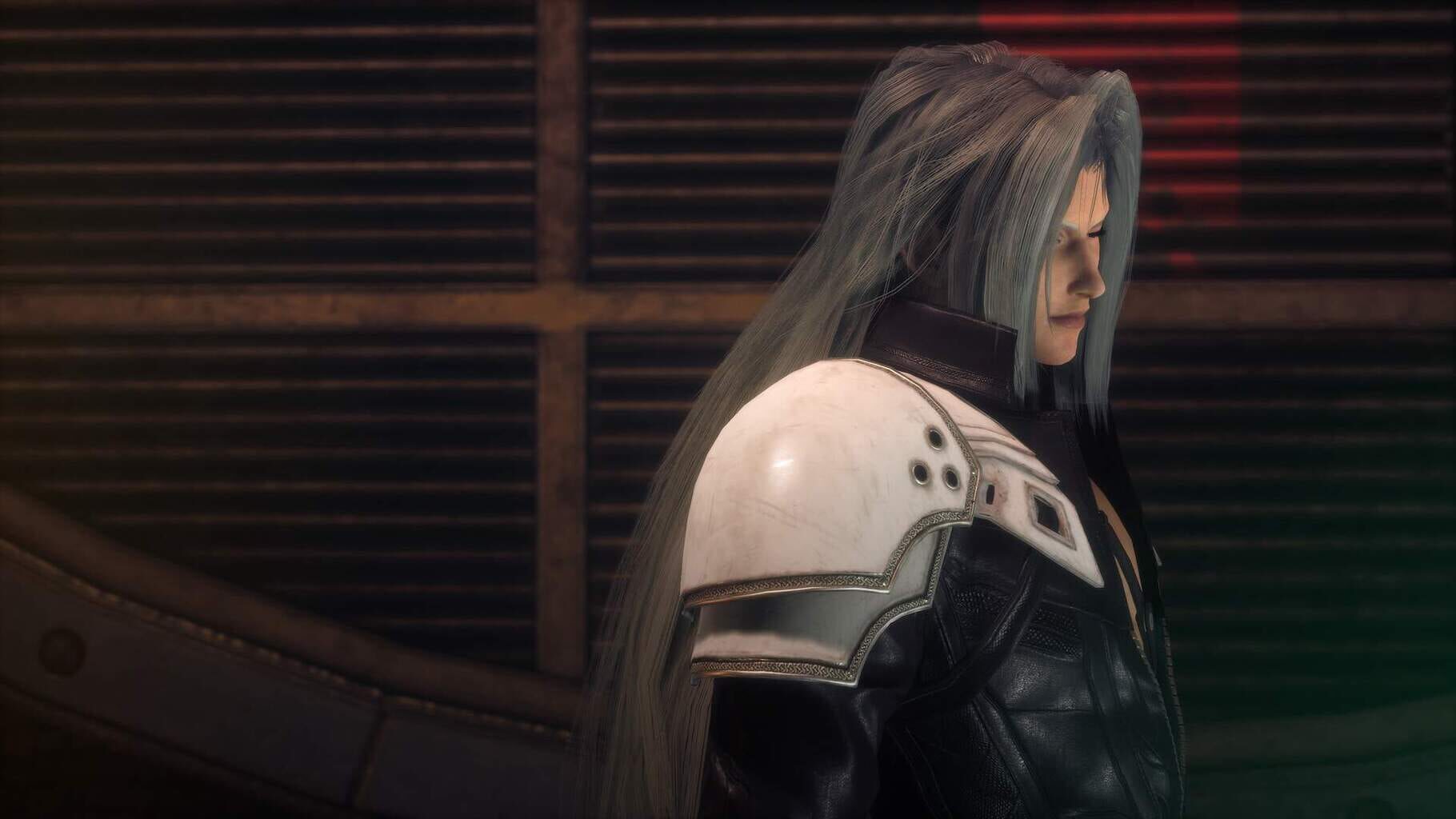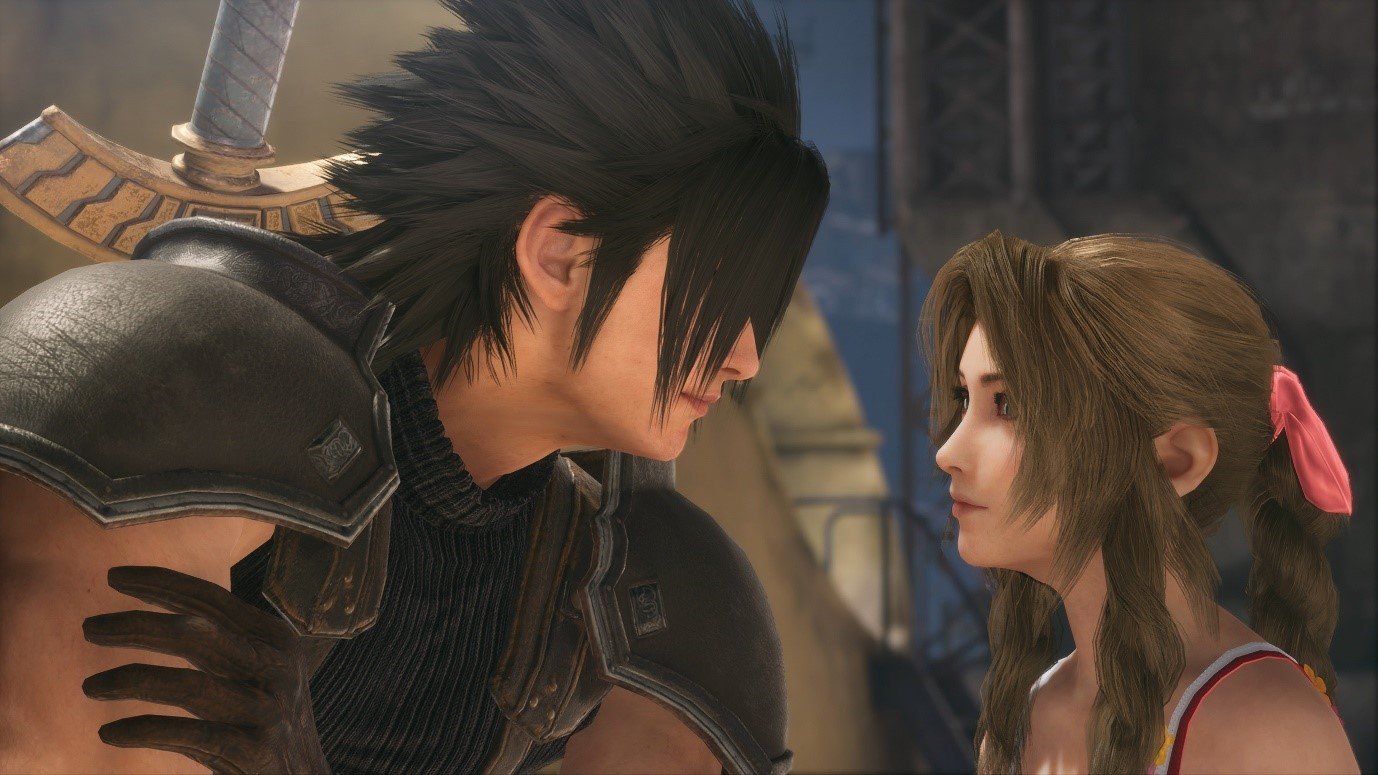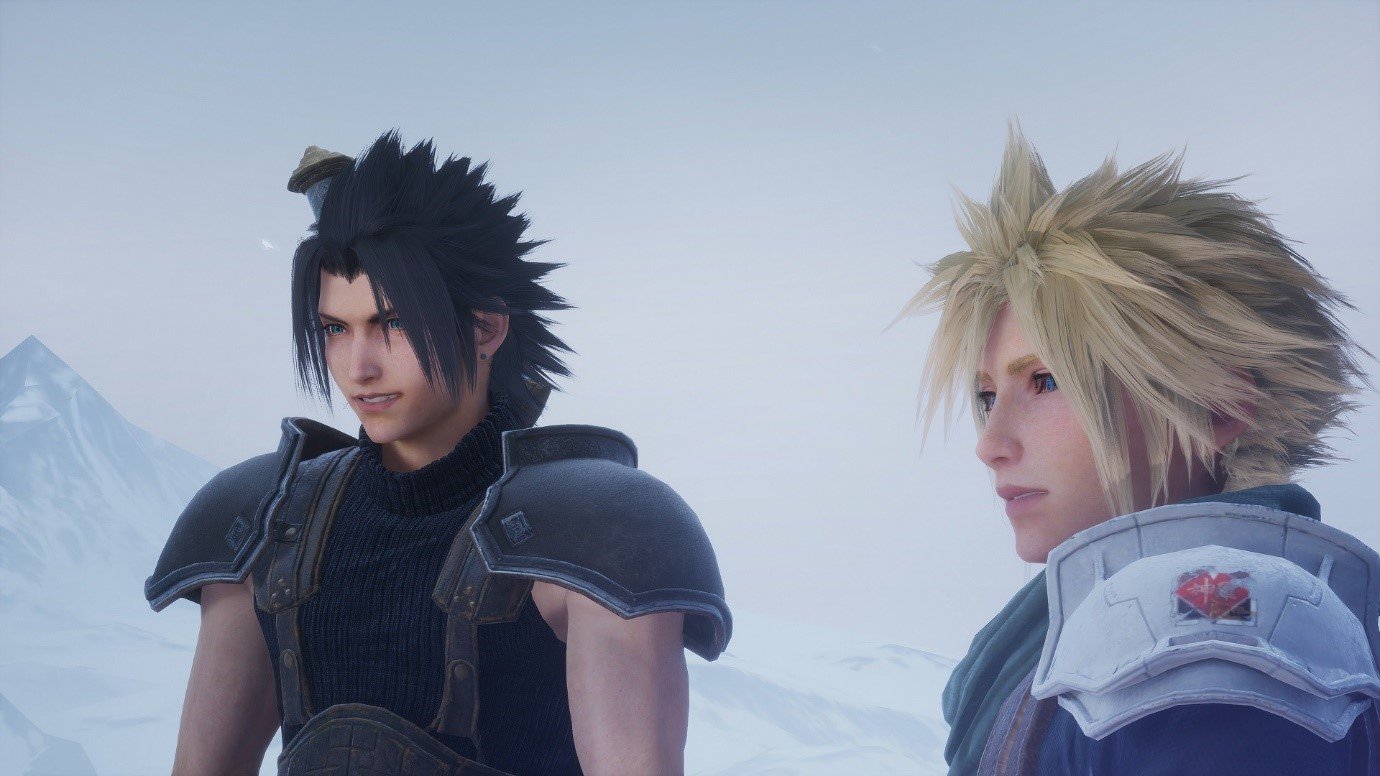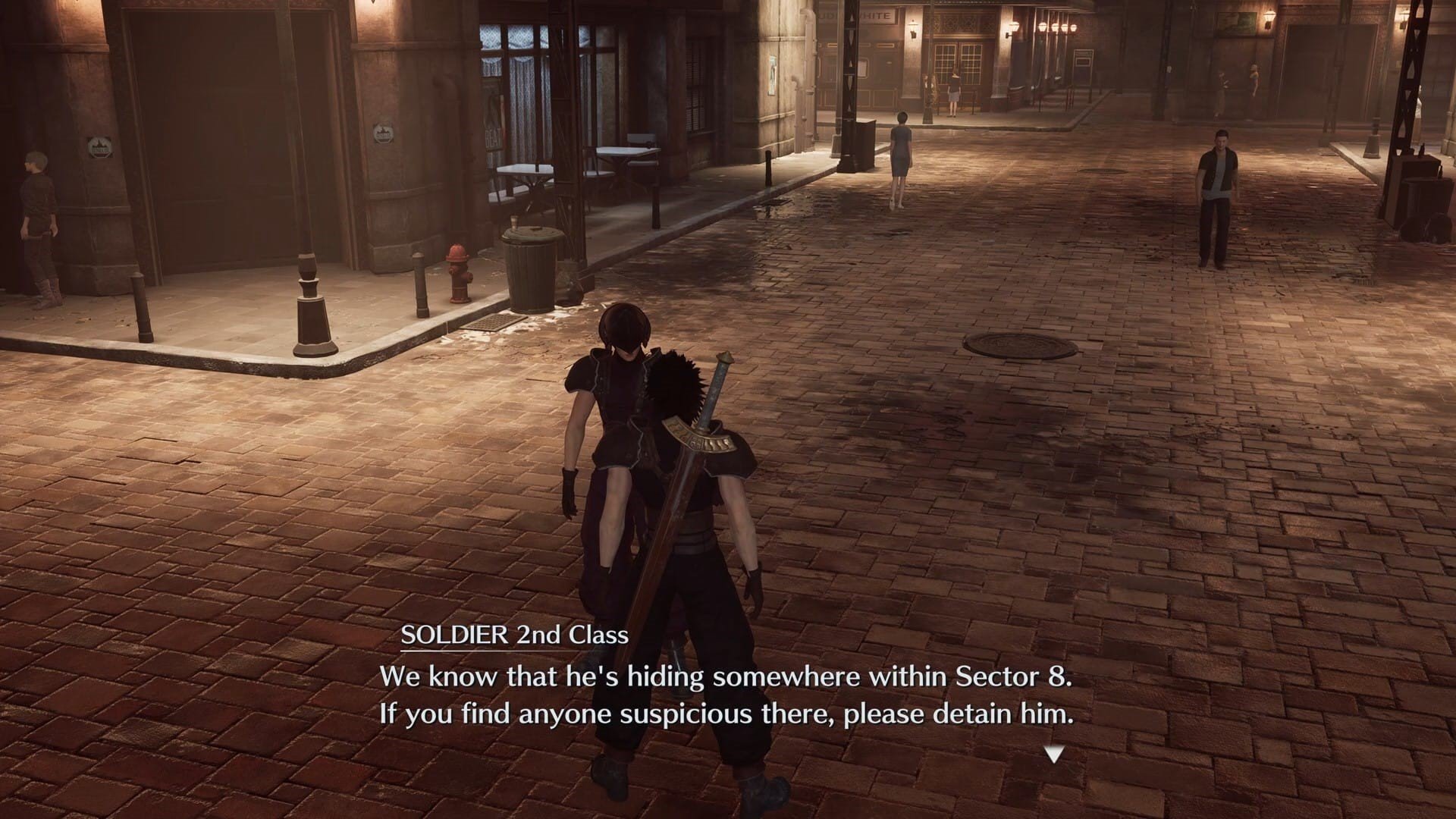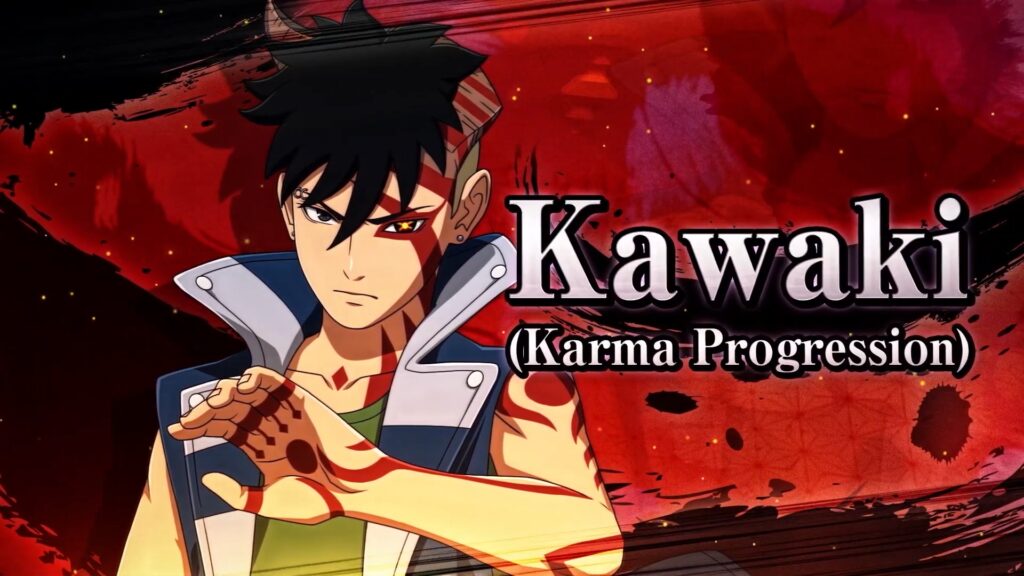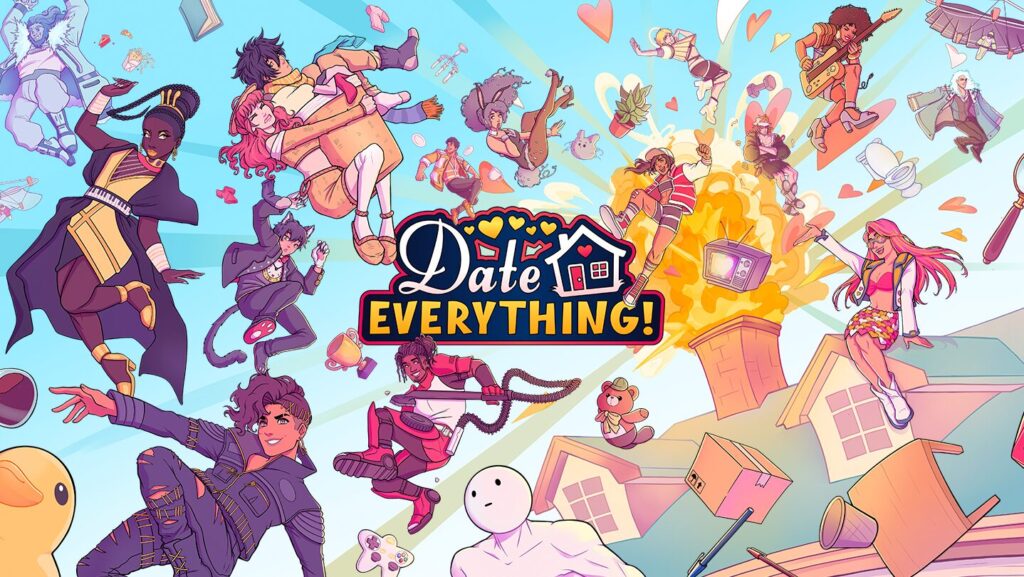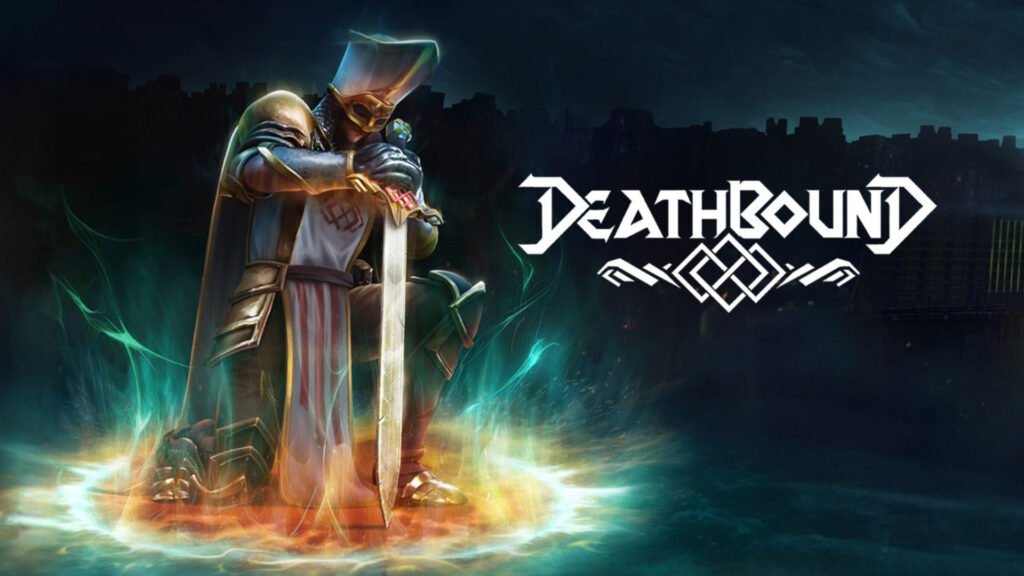Creating a huge, epic fantasy world has the narrative advantage of being able to bring life to more than just one story. Stories from such a world are usually able to stand on their own two feet as independent tales that are, by themselves, complete, yet the option of a canonical sequel, prequel, intertwined side-story, or spin-off is usually always a pleasant bonus.
This has always been a storytelling trope. Without the Iliad, we wouldn’t have The Odyssey. Without Prometheus, we wouldn’t have Pandora’s Box. Without The Hobbit, we wouldn’t have Lord of the Rings. It’s the same universe, a different story, and a different leading character. You get the idea. And so, when you create an epic, modern-day masterpiece like Final Fantasy VII, people will usually throw money at you to get a little more.
Despite making a considerable contribution to the narrative of Final Fantasy VII, Zack Fair was never in the spotlight, with his own quest largely forgotten and overshadowed by current events. Crisis Core is your chance to see Zack’s side of the story, beginning almost seven years before the start of Final Fantasy VII. It was a real shame that such an important part of the Final Fantasy VII universe was hidden away for so long on the tiny, unflattering screen of the PSP.
Reunion is the big-screen remaster of Crisis Core that so many have asked for since the original game was released. For those who shun the smaller screens of handheld gaming, this will be their first time experiencing this early chapter in the ongoing Final Fantasy VII saga. The big question is, is it worth the wait?
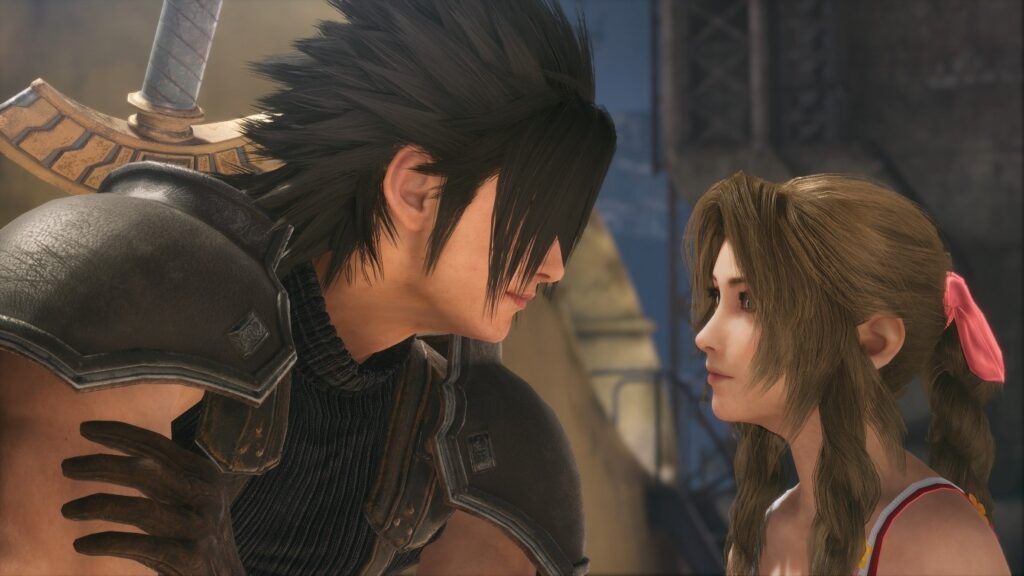
Story
This episodic tale plays out through chapters, with varying amounts of time skipped between them until the game’s climax and handover to Cloud Strife’s Final Fantasy VII beginnings with Avalanche. Zack’s tale begins with his promotion to the rank of First Class Soldier at the end of the Shinra-Wutai war, as he comes to terms with his rising celebrity status whilst always in the shadow of his mentors: the honorable Angeal, the eccentric Genesis, and, of course, the iconic Sephiroth.
It’s a tale of friendship and loyalty as, one by one, Zack’s comrades periodically leave Shinra under mysterious circumstances until Zack is also forced to choose where his loyalty lies. As he becomes more experienced, Zack will also become a mentor, taking a young Cloud Strife under his wing while juggling a familiar love triangle with series heroine Aerith and the quirky Turk agent, Cissnei.
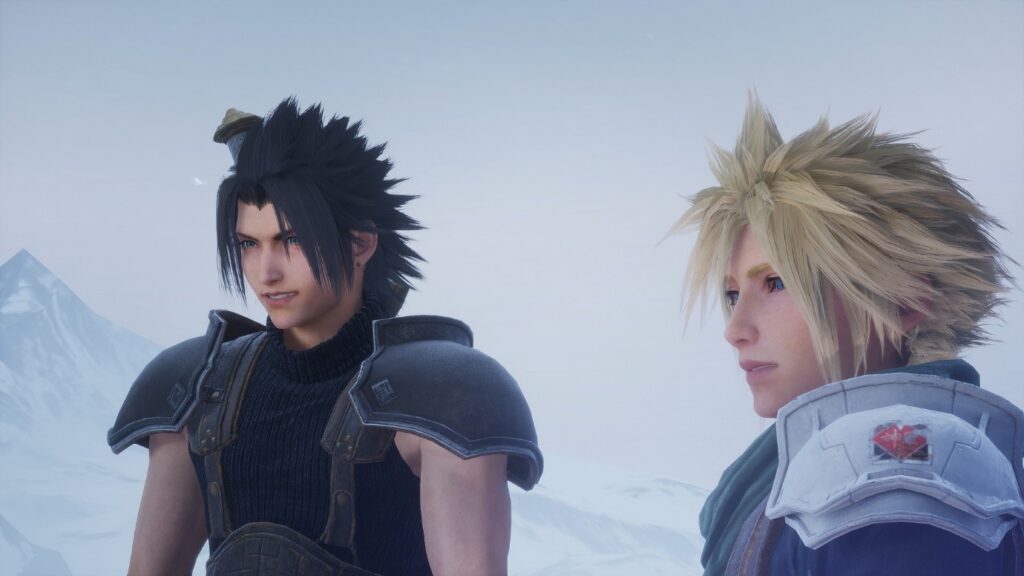
Gameplay
Like the successor Final Fantasy VII Remake, Reunion’s combat is more focused on flashy solo combos and spells. Reunion uses materia orbs, which grant the use of magic spells as well as elevated combat abilities, utilities, and stat boosts. You can choose which materia to equip Zack with, which will be periodically leveled up in combat. Materia can even be fused together to create new enhanced forms, though this is more complex and brings in some unexpected crafting elements.
You can basically design your own control layout, with five different sets of materia and button commands available for different builds of your design. Though you can’t switch these sets on the fly, you can change them up when not in combat or restarting after a game. It’s mechanically rewarding as an RPG speccing system and very easy to access in real-time combat, but it can leave new players feeling stumped on what the ideal build should be.
This has the benefit of making combat dynamic and somewhat unpredictable. It’s not quite as lively and fluid as Remake’s combat, but it certainly feels more thrilling and reactive than the original PSP version did, though much of that is due to the drastically improved character animations. Dodging and blocking also play a significant role, yet sometimes those spinning slots in the upper corner of the screen will give you random boosts, so you don’t need to block quite so often.
This bonus-providing slot machine is the Digital Mind Wave, or DMW for short, and is a lot less distracting than the PSP original. Gone is the original release’s ‘modulating phase,’ which briefly stopped combat. The DMW randomly grants you temporary bonuses, including HP boosts, invincibility, and unlimited MP, which are essential for delivering critical damage to bosses whilst granting you a window to heal up if required.
Matching the three portraits of summon monsters will allow you a window to summon the respective creature to deliver extra damage. Alternatively, matching three portraits of one of Zack’s allies will perform a Limit Break special attack. Limit breaks are themed to the character whose portrait appears, and a cutscene of Zack’s memory of that character will play, often giving a kind of pep-talk to Zack when you trigger them. These scenes are far too common and a silly, irrelevant distraction in combat, albeit with handy results.
When these iconic characters (and others too) come and go as inactive party members, it makes one wonder how much more authentic the game would feel if these characters were active, playable party members instead. Rather, we have a lonely, solo effort with such wonderful characters sitting on the sidelines and tragically underused. Playing even temporarily as Cloud, Aerith, Sephiroth, Tseng, or even Cissnei could only be good, right?
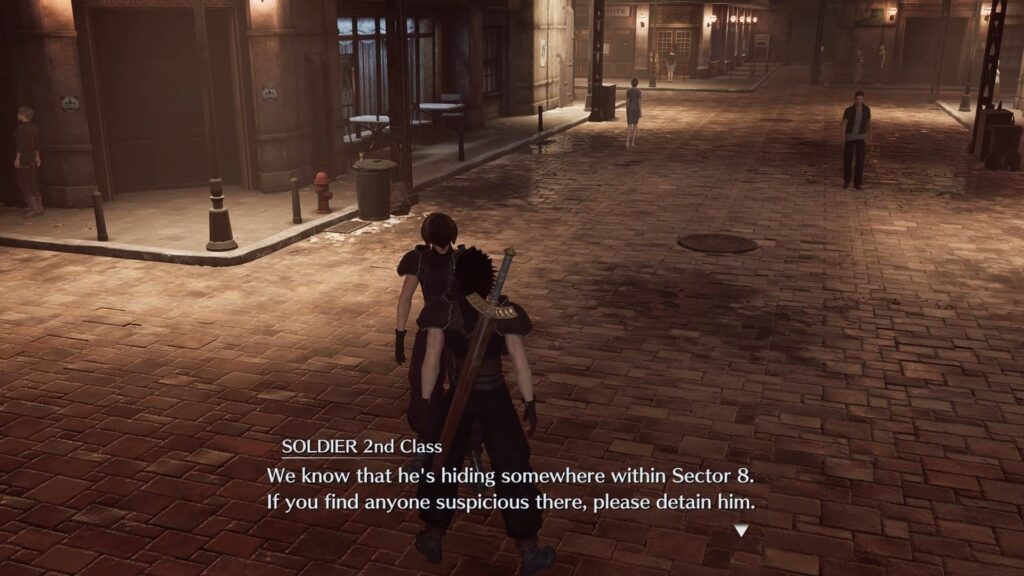
Graphics/Sound
Crisis Core Reunion is very much a cinematic experience. The game is, at key points, a spectacle to behold, taking the flashy, action-packed sword duals and acrobatics featured in the canonical sequel movie Final Fantasy VII: Advent Children to highlight the fantastic skill and raw power First Class Soldier interwoven into a story which expands on key locations from the original game and introducing a few others too.
Every environment has been reskinned to bring an extra layer of lived-in detail, which is only surpassed by the reskinned character models, which have received such attention to detail that the game can rival the high-definition visuals of Final Fantasy VII Remake at times, only being distinguishable with side-by-side comparisons. It’s a valiant effort worthy of Square-Enix’s ‘More than a Remaster’ marketing label.
The music is also cleaned up nicely, taking full advantage of the orchestra available and enhanced versions of classic tracks from the original game, making a welcome return. ‘One Winged Angel’ is and continues to be a welcome fan-favorite. Characters are also revoiced with their Final Fantasy VII Remake counterparts, reprising their roles here. As great a job as the new cast does here, it’s a shame to say goodbye to the familiar voices used in the original game, many of whom stuck around for the likes of Dirge of Cerberus, Advent Children, and Kingdom Hearts.
Replayability
Trophy hunters will have plenty of reasons to return to Crisis Core Reunion after the credits role since every one of the multiple mini-games and their relevant trophies are missable due to the episodic style of narrative. Whilst it’s nice to get everything done in a single playthrough, this isn’t possible for those who wish to focus on enjoying the story and tying up loose ends later. It’s a shame since tackling the overwhelming amount of side content as and when it becomes available feels like a major distraction from the main story.
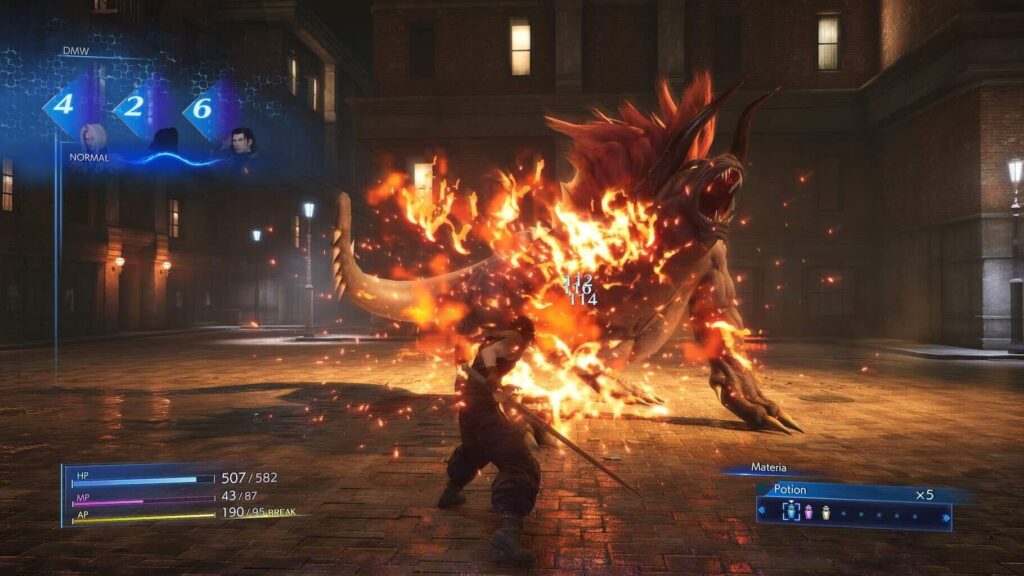
Conclusion
Crisis Core Reunion honors the groundbreaking story delivery of Final Fantasy VII, but it does so in its own way. Taking the vital themes of Final Fantasy VII: memory and identity, characters’ perspectives and memories of who they are and who they are perceived to be is what defines their motivations. Final Fantasy VII’s story is fundamentally about characters who are shaped and defined by their interactions with others and that they need to come together to surpass the challenges of a world enduring a shadow crisis.
The promises, hopes, and failures characters share with one another and how those memories surface and develop are a central part of the Final Fantasy VII universe. This is what makes Zack the hero he aspires to be, defined by those who’ve made him into one and those who look up to him as one. It’s not because he’s the main character with the big sword but because he never fails to put others first. Zack Fair is most certainly not Cloud Strife. Zack has no time to pick favorites and brood over past failures and trauma. He’s a lively young fellow on a mission, if a little flamboyant.
For all of its strengths, Crisis Core is not a perfect prequel. The game’s core narrative is an excellent cinematic experience, but it doesn’t bring much of value to the overarching narrative that we didn’t already know. Nevertheless, Crisis Core should be respected since it delivers on its promises as intended. The game successfully expands on the Final Fantasy VII lore somewhat and expands on the backstory of beloved characters while introducing a handful of new characters into this universe without really damaging the canon, though it will stretch it to its limit.
Built with the same ethics and ideals as Final Fantasy VII Remake and Final Fantasy XV, sadly, we have a ten-hour game expanded with fifty hours of filler. Following the structure explored in later games, Crisis Core is crammed with limited-time-only mini-games, low-reward side-quests, and other missable rewards. The vast majority are optional but, unfortunately, mandatory for platinum trophy hunters. I only actually needed to beat around 50 of the 300 available side-missions to grant me enough levels and materia to beat the end-game bosses.
This leaves us with a solid, rewarding, chapter-based story. Unfortunately, it’s a story that’s frequently interrupted. Ultimately, we have a seriously bloated game here which does have a compelling story if you focus on it, with spectacular visuals and cinematic sequences, and mostly great characters. Crisis Core does get one thing right where VII Remake and XV failed, and that’s to present a fully complete narrative. Tailor your experience with this one to suit your own gaming needs, and you’re sure to find a solid prequel here. It might not quite be what we were expecting (or asked for), but it’s still worthy of a place in your collection.
Joys
- Flashy visuals
- Great characters
- It’s more Final Fantasy VII goodness
Cons
- It doesn’t handle like Final Fantasy VII
- Far too much filler
- Missable content
